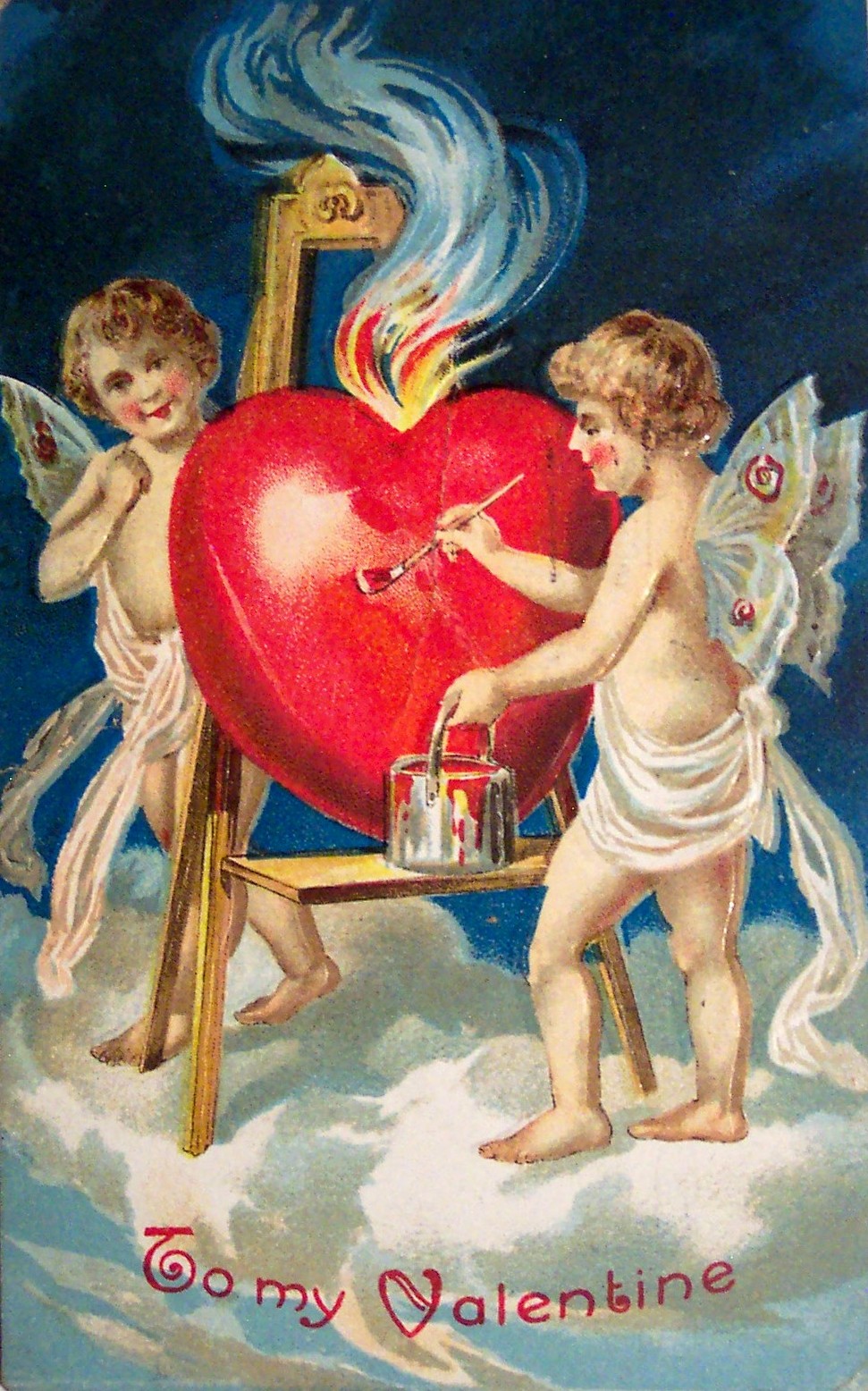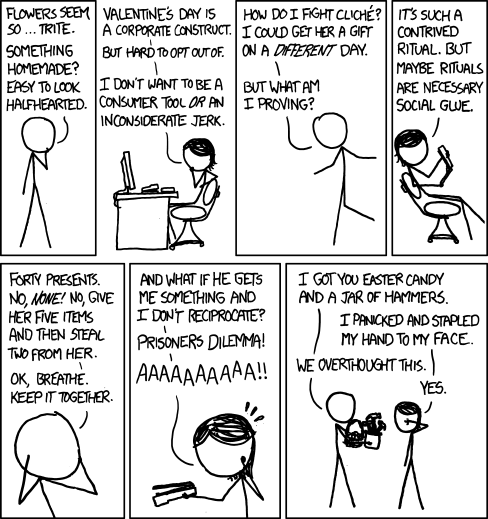 Although many of us will be celebrating Valentine's Day with flowers, chocolates, romantic dinners, wine, etc., do we know what the origins of this festival are? Well, one Islamic cleric seems to think that it's got something to do with a bacchanalia that surrounded Lupercalia and the subsequent death of St. Valentine which occurred later as a result of preaching against it.
Although many of us will be celebrating Valentine's Day with flowers, chocolates, romantic dinners, wine, etc., do we know what the origins of this festival are? Well, one Islamic cleric seems to think that it's got something to do with a bacchanalia that surrounded Lupercalia and the subsequent death of St. Valentine which occurred later as a result of preaching against it.Ummm... no. Although it is just Wikipedia, nothing appears to be mentioned about pairing and free sex under the Lupercalia entry at Wikipedia.
Looking, instead, to the entry for Valentine's Day, we find that its associations with romantic love have more to do with Chaucer than with the Romans (or even Pope Gelasius I, who named the day in honor of St Valentine in 496 AD). It has - obviously - evolved since the Middle Ages of England. The style of celebration of today will be completely unrecognizable by Chaucer (that is, if he even deigns to notice its celebration, what with all that he might be transfixed by all the marvels of today's world).
In the end, I hope that you celebrate Valentine's Day without overthinking about it too much:
Via xkcd
UPDATES (Valentine's Day-related research studies): Two somewhat-of-a-stretch news releases of research tangentially related to Valentine's Day - because they deal with the topic of relationships - that were framed as being related to Valentine's Day:
Cut your Valentine some slack:
A new Northwestern University study shows that the more you believe your partner is capable of change and perceive that he or she is trying to improve, the more secure and happy you will feel in your relationship. That is true even if you think your partner could still do more to be a better partner.
"Many of us tend to under appreciate our partner's efforts to improve the relationship, simply because we do not have enough faith in those attempts," said Chin Ming Hui, the lead author of the study and a fourth-year graduate student in the department of psychology at Northwestern University's Weinberg College of Arts and Sciences. "When we see those efforts in a positive light, we can enjoy our relationship much more."
"A secret to building a happy relationship is to embrace the idea that your partner can change, to give him or her credit for making these types of efforts and to resist blaming him or her for not trying hard enough all of the time," Molden said.
Men are not from Mars, women are not from Venus:
Professor Mari Ruti of the Department of English and Drama at the University of Toronto Mississauga has written about love for both academic and mainstream audiences. Her newest book, The Summons of Love, portrays love as a much more complex, multifaceted phenomenon than we tend to appreciate—an experience that helps us encounter the depths of human existence.In short: relationships are not formulae with deterministic solutions (let alone a single solution). It's a big, "No duh" that hopefully we can remember while we have the candle-lit dinners with our significant others tonight - as well as the other 365 days this year (and 364 days when it's not a leap year like it is this year).
The main argument is that the image of romantic love that the self-help industry tries to sell is based on a few misconceptions. The first is the idea that love is a game with winners and losers. The second is the idea that men and women are inherently different so that to make romance work, women need to learn to read the so-called male psyche.
I argue that there is no such thing as the male psyche and I also argue that the more we try to manipulate our romantic lives, the more we think of love as a game, the less authentically we are able to love. So basically, whoever came up with the idea that love is a game destroyed its soul.
As a university professor, I teach 18- to 22-year-olds. I know from experience that their understanding of gender is a lot more fluid than what these self-help books portray.
As research for my book I read 20 to 25 self-help books. Their portrait of men in particular is really strange. Book after book tells us that men are these cave men who are wired to hunt women. They’re wired to cheat on you. They don’t understand emotions. They will forget your birthday. They’re commitment phobic. The young women I teach don’t think of men in these terms and the young men I teach don’t think of women as prey to be conquered. There’s a lot more fluidity and there’s a lot more mutual respect than these authors are suggesting. When you look at younger people you see this clearly.

No comments:
Post a Comment